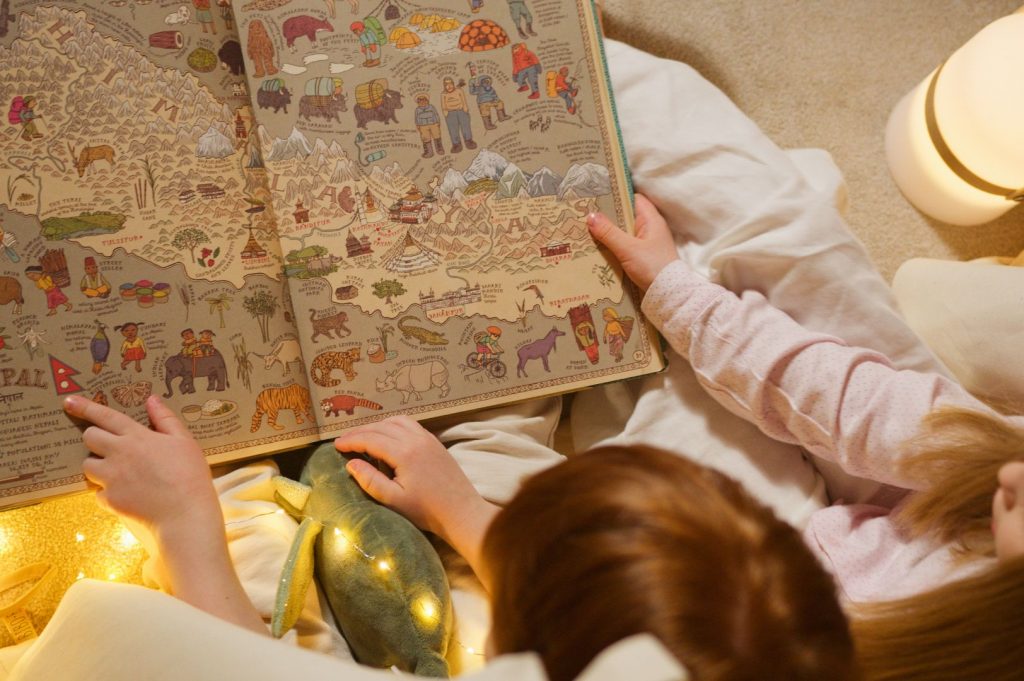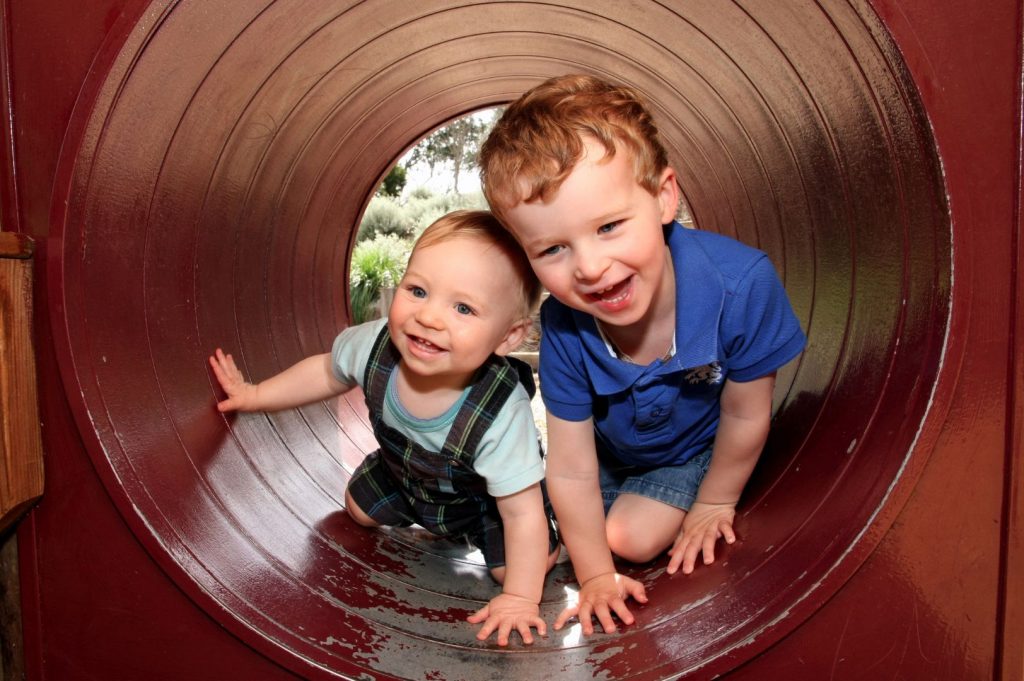Sleep is one of the biggest concerns reported by parents with young children and one of the most common reasons that parents seek help and advice from their nanny.
It’s not hard to see why this might be; taking care of small children can be exhausting at the best of times but a lack of sleep or broken sleep makes it even harder and this can really begin to take its toll on families.
Many parents will turn to some of the countless books, sleep training programs and expensive products on the market in order to “train” a baby to sleep for longer stretches so that they can too.
The notion of Sleep Training can be controversial and something that we as nannies should encourage parents to research in-depth for themselves. Here are some tips that might help you to support families to get more sleep.
Have realistic expectations
First and foremost, we need to have realistic expectations! The fact that sleep “issues” are one of the most commonly reported concerns for parents with young children should give a bit of a clue!
Children who wake in the night are the rule, not the exception to it. In fact, most adults don’t “sleep through the night” in a solid 12-hour block, so it’s pretty unreasonable for us to expect children to.
Although it does not make it any easier to deal with a lack of sleep, sometimes reminding parents that night waking is perfectly normal can remove the emotional burden of the situation.
Just like adults, babies, toddlers, and young children wake at night for a wide variety of practical reasons.
They could be hungry, thirsty, need the toilet, be too hot, too cold, have had a bad dream, have a tummy ache, be uncomfortable and so on.
When adults wake for these reasons we are usually able to take some kind of action to fix the problem, for example getting ourselves a glass of water, going to the toilet or calming ourselves down. Babies and small children don’t always have these options so they call out to their caregivers for help.

Some of these problems can be remedied perhaps by leaving a drink near the bed that a toddler can help themselves to, providing extra blankets near the bed for an older child or using a nightlight for little ones who may be scared of the dark.
However, babies, toddlers and young children often need help to meet their needs in the daytime so at nighttime this is no different.
When we think about human history and consider sleep from an evolutionary perspective, it is quite normal for young children to need their parents at night; our ancestors slept communally and shared “watch” duties at night time in order to keep everyone, including babies, safe (Worthman and Melby 2002) Humans’ evolutionary past has left its mark on brain and so is natural and normal for human babies to want to be close to their parents.
With all this in mind, we can approach children’s sleep with a more realistic expectation. We can still try to improve sleep because it is important that parents are able to get the rest they need too, but our expectations may need to be adjusted.
Work with children’s circadian rhythms
Circadian rhythms or the ‘biological clock’ is designed to regulate the timings of sleepiness and wakefulness as we go through 24-hour periods. We looked more in-depth at this in our article on children’s natural sleep rhythms which may also help you to improve your understanding of children’s sleep.
The cycle of light and dark throughout the day and night has a profound effect on our circadian rhythm. In the darker, winter months many adults feel a bit lethargic and down, whilst longer summer daytimes often see children rising far too early. However, if we work with the effects of daylight we can help children and ourselves sleep better during the nighttime.

It is daylight that helps to set children’s natural circadian rhythms and sleep-wake schedules, so using this to our advantage is a way that nannies can support families with babies, toddlers and young children’s sleep.
Exposure to natural light in the daytime, particularly in the late afternoon can help to improve children’s sleep. Nannies can take children outdoors during these times, perhaps on a walk or to play at the park, and monitor whether this makes a difference to children’s sleep.
Avoiding artificial light before bedtime can also improve children’s sleep because blue light, such as that in most of our homes and electronic devices, signals to the body that it’s time to wake up, and it is disruptive to the production of hormones needed for sleep.
For children, many of the nightlights marketed use blue-light, so nannies can encourage parents to consider swapping to a nightlight using red tones of light instead.
Ensure rich, sensory input throughout the day

When we run around frantically from one activity to the next we are certainly in danger of overstimulating babies, toddlers and young children. Overstimulation gets a lot of press when thinking about children’s sleep.
However, it is also worth exploring whether babies, toddlers and young children are struggling to sleep because they have been under-stimulated. Young children need adequate rich, sensory input during the day in order for them to sleep well at night
Spend more time outdoors

Spending time outdoors is good for children and adults, and one of the ways that it benefits us is that it promotes good quality sleep.
Along with exposure to natural sunlight, spending time outdoors can help to burn off excess physical energy (even for babies who aren’t walking, as the body will work harder to regulate temperature and so on) and fresh air affects the types of hormones and chemicals in our brains, which in turn can lead to better sleep.
Use the senses
There are plenty of ways to use the senses to help children to fall asleep, and get back to sleep if they wake.
Nannies can help to educate parents on these, and depending on the extent of their role may be able to implement some of these techniques.
We’ve looked at ways to use light to help children fall asleep, but sound can be comforting too; many families have great success using white noise with babies, but toddlers and young children can benefit from white noise, nature sounds, lullabies or audiobooks too. These things can become a signal for children that it’s time to sleep.
Essential oils can be useful too, perhaps try baby massage, or a foot rub using relaxing essential oils like lavender.

The smell of certain oils can help to relax and calm children ready for bed.
Nannies can also consider the materials that children are sleeping in; pyjamas and bed sheets can make a big difference at this age so can the temperature and humidity in the room.
Here different things will suit different children so you may need to experiment.
Be their village

There is a lot of information available for parents and nannies to weigh up on the subject of children’s sleep. Reframing our expectations of sleep for young children and bringing it in line with what is biologically normal, rather than simply reflecting our cultural expectations can be especially helpful
When we do this, it becomes apparent that most children do not have a ‘sleep problem’, just that biologically normal infant sleep is culturally inconvenient.
In many homes, both parents are required to work outside of the home and run busy lives, so the focus shifts onto getting the baby to sleep so that normal family life can continue to function.
Humans were never meant to raise children alone, the well-quoted proverb “It takes a village to raise a child” is biologically true. Unfortunately, most parents now find themselves away from family, and lacking a village or tribe to share raising children with.
Nannies, therefore, find themselves acting as a crucial support to families struggling with children’s (albeit normal) sleep patterns and trying to juggle the rest of their busy lives.




